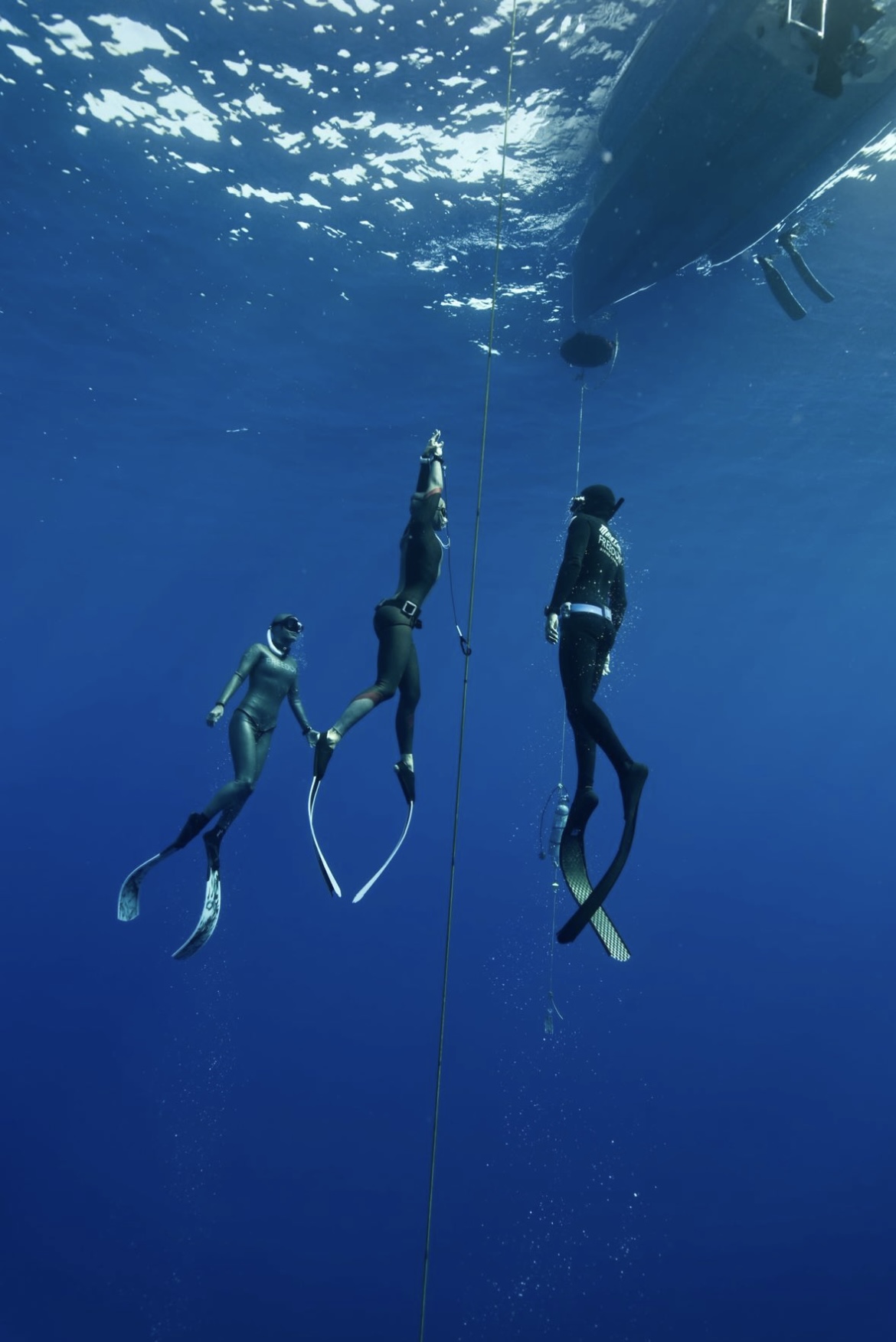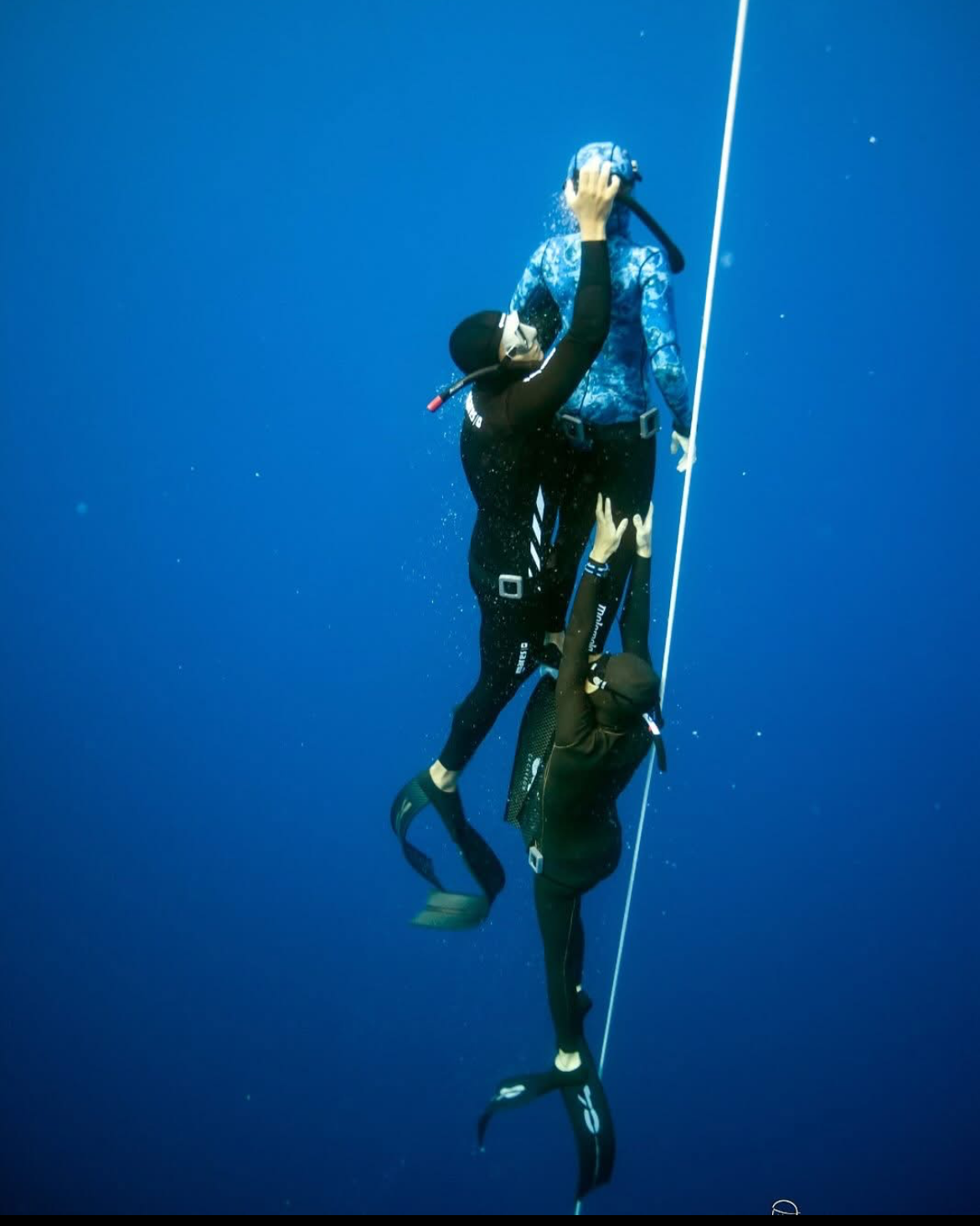Time spent in or near the sea lowers stress hormones, restores focus and strengthens the body’s natural resilience.
By Christina Michailidis
For centuries, people have looked to the sea for healing. In 18th century Europe, doctors would prescribe sea air and saltwater baths as remedies for melancholy and fatigue. This is what is referred to today by scientists as exposure to ‘blue space’, time spent near or in the water. Studies show it can lower stress, improve sleep and even change how the brain processes pain.
In Cyprus these benefits can be felt firsthand. From cold water swimming to freediving, more islanders are finding solace in the sea, not just as a sport but as therapy.
“It gives one the feeling of having conquered something,” says Nora Hadjisotiriou of the Ayia Napa Winter Swimmers Club. “One’s blood moves very fast, which offers a natural cleanser, and of course one is healthier, meaning one is less susceptible to colds and flus.”
For others, therapy comes in silence rather than in motion. At Freedom Freediving Centre in Larnaca, founded by Pavlos Kourtellas and his partner Nela Ukropcova – both instructors, athletes, and national record holders – the sea is space for focus and stillness.
“Just imagine that silence when the noise is muted… it’s like instant meditation with a calming effect,” says Ukropcova describing the feeling of being underwater.

As someone who has spent years surfing, I recognise that same shift, the way the water demands presence. All the background noise fades aways, replaced by rhythm, breath and the crashing of the waves. It’s a kind of quiet that many in Cyprus turn to for balance and clarity.
Modern research supports what swimmers like Hadjisotiriou and Ukropcova describe. Studies in environmental psychology have found that time spend near the sea what is known as ‘blue space exposure’ can lower cortisol levels, improve mood and even restore focus. The rhythmic sounds of waves and the repetition of movement create what is referend to by scientists as “soft fascination”, a state of mind that is relaxed without becoming disengaged. It is a sort of natural meditation, one that freedivers say mirrors the mental stillness they find below the surface.
“When we submerge ourselves, a phenomenon called the mammalian dive response occurs,” explains Ukropcova. “Heart rate slows, blood flow is redirected to the heart and brain and a more relaxed stated of the body is initiated.” This natural reflex is one of the reasons why freedivers report feeling calmer and more focused even long after getting out of the water, she adds.
Savvas Savva, a freediving Instructor from Free2Dive in Limassol, calls freediving “mindfulness in motion”. Before each dive, divers slow their breathing, centre their thoughts and engage in the body’s parasympathetic nervous system, the same process that helps regulate stress and promotes recovery.

“Every dive is a meditation,” he says. “Freediving trains both the body and mind to stay steady under pressure.” Both see the same transformation in their students, “When they dive into the water, they are playful, present … and free,” Ukropcova says.
Not everyone looks for healing beneath the surface, for some it comes from the shock of sudden chill of winter water.
In Ayia Napa, the Winter Swimmers Club has turned year-round swimming into a community ritual. “It is also a camaraderie, the getting together,” says Hadjisotiriou. “Swimming in the morning has replaced the visits to the kafenio of the village of older times.”
That sense of connection now extends to the club’s annual Ayia Napa Winter Swimmers Festival which drew almost 400 participants this January.
“We are super proud of our festival,” she says. “This year we went international. We are members of the International Winter Swimmers and the Open Water Associations.”
With support from the municipality, the event combines swimming, tai chi and yoga sessions as well as sand art competitions for local school children and even home cooked tarhana offered by members.
For others, winter swimming is more of a solitary act. What local swimmer Nikos Kyriakou, describes as “me time” and a personal challenge against the cold. He began swimming through the colder months after years of battling allergies and sinusitis. “Out of desperation I gave sea swimming a try, and it worked better than any medicine,” he says. What began as a health experiment soon became a way of life.
“The cold hits you like a shock, but then the happy hormones kick in he adds, “I come out with a real mood boost and more energy, it also trains self-control, you learn to push yourself instead of giving in to comfort”.
The habit has transformed more than just his health, he says he rarely gets sick, and he feels stronger mentally. His advice to someone curious about trying winter swimming for the first time: “Don’t overthink it, just try it, it’s great for your health and mindset, and no, you won’t get sick; it’s actually the opposite”.
What makes these experiences uniquely Cypriot says Savvas, is the sea itself. “Cyprus is blessed with exceptional visibility, sometimes up to 40 metres… this clarity gives divers a sense of endless space and serenity”.
The island’s gentle conditions make it possible to swim almost year round, while caves, wrecks and coves offer both adventure and calm.
“But beyond geography,” Savvas says, “Cyprus has a special calmness, an ancient grounding energy. The sea here doesn’t just cool you – it heals you.”
What seems to be the common theme among those who return to the sea again and again, is that of renewal. Modern studies echo what swimmers already know intuitively: time spent in or near the sea lowers stress hormones, restores focus and strengthens the body’s natural resilience.






Click here to change your cookie preferences